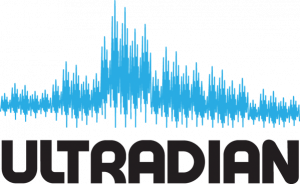January: Waking and stress | News and features | University of Bristol
Waking up is not stressful, study finds

Press release issued: 15 January 2025
Waking up does not activate an increase in the release of the stress hormone cortisol. Cortisol does, however, increase in the hours prior to wakening as part of the body’s preparation for the next day, new research led by the University of Bristol has found. The study is published today [15 January] in the Proceedings of the Royal Society B.
For many years it has been generally accepted that waking up results in a stimulus to release hormone cortisol – a phenomenon called the “cortisol awakening response” (CAR). This response has been used to investigate many clinical conditions including PTSD, depression, obesity, and chronic fatigue syndrome (ME/CFS).
A major limitation of studies using CAR is that protocols typically only assess samples obtained after waking up, and not in the period prior to this, since measurements are taken in saliva. Consequently, the studies are not able to prove a change in the rate of cortisol secretion over the awakening period.
To resolve the critical question of whether the rate of cortisol secretion actually increases after wakening, the Bristol research team used an automated sampling system to measure tissue cortisol levels both before and after wakening in 201 healthy male and female participants aged between 18 to 68 years old.
The researchers found awakening did NOT result in an increase in cortisol release, with no evidence for a change in the rate of cortisol increase in the hour after waking when compared with the hour prior to waking. This suggests that any change in cortisol levels immediately after waking are much more likely to be the tail end of the daily rhythm of cortisol – which starts increasing in the early hours of the morning, and reach a peak shortly after habitual wake time.
Importantly, the study also observed substantial interindividual variability in absolute concentration and rate of change, and differences in dynamics that may be attributed to length and timing of sleep. Based on these findings, the researchers suggest caution is needed when interpreting cortisol measurements solely obtained in the hour after waking.
The findings demonstrate that the major cause of any changes in cortisol around the time of awakening are predominantly related to the endogenous circadian rhythm of cortisol. Furthermore, the results also suggest that if cortisol has any relationship to awakening, it is with factors that contribute to the initiation of awakening rather than being a response to it.
Circadian rhythms, the natural 24-hour cycles of physiological and behavioural patterns, are extremely important adaptations to living on our planet with its daily light:dark and temperature oscillations, and disturbances of these rhythms contribute to many psychological, metabolic, cardiovascular and immunological health conditions. Understanding the role of cortisol rhythms in many of these conditions will be very important for researchers understanding of these disorders and their potential treatment.
Stafford Lightman, Professor of Medicine a Bristol Medical School: Translational Health Sciences (THS), and one of the lead authors of the study, said: “Our study opens up a whole new framework for understanding the relationship of overnight increases in cortisol with sleep, and how this may be disrupted in sleep disorders, depression and many other conditions.”
Dr Thomas Upton, Clinical Research Fellow and co-lead author in the Bristol Medical School: (THS), explained: “By measuring both before and after waking, this study provides much needed and crucial insight into the dynamics of cortisol with respect to sleep and endogenous rhythms. For me, a key message is that much caution should be exercised if attempting to interpret post-wake cortisol values where information about the pre-waking state is not known.”
Marcus Munafò, Professor of Biological Psychology and Associate Pro Vice-Chancellor – Research Culture at the University of Bristol, added: “As well as providing important insights into the biology of our sleep-wake cycles, this work illustrates how findings that have become received wisdom within the research community may be wrong.
“Making sure our work is robust and reproducible – including rigorously testing previous findings – is a central part of the research culture we try to foster at the University of Bristol.”
The research team suggest that future studies on mechanisms of arousal from sleep both overnight and during the morning should carefully consider dynamic changes in the activity of the hypothalamic pituitary axis – the system in the body that regulates the stress response and the release of cortisol – in addition to sleep and behaviour.
The study was funded by an EU Horizon 2020 grant ‘Ultradian’ (grant no. 633515) and a Biotechnology and Biological Sciences Research Council (BBSRC) follow-on fund (BB/M019268/1).
Paper
‘Awakening not associated with an increased rate of cortisol secretion’ by Stafford L. Lightman, Samantha Klaas, Thomas J. Upton et al. in Proceedings of the Royal Society B [open access]

